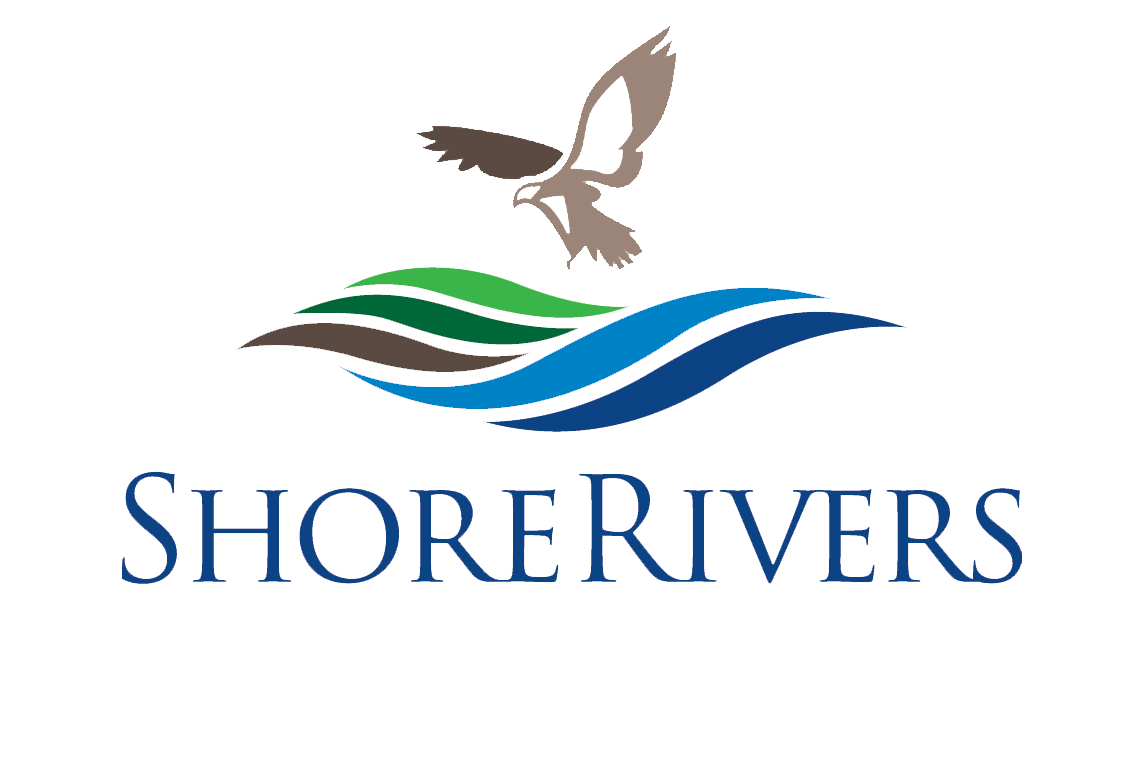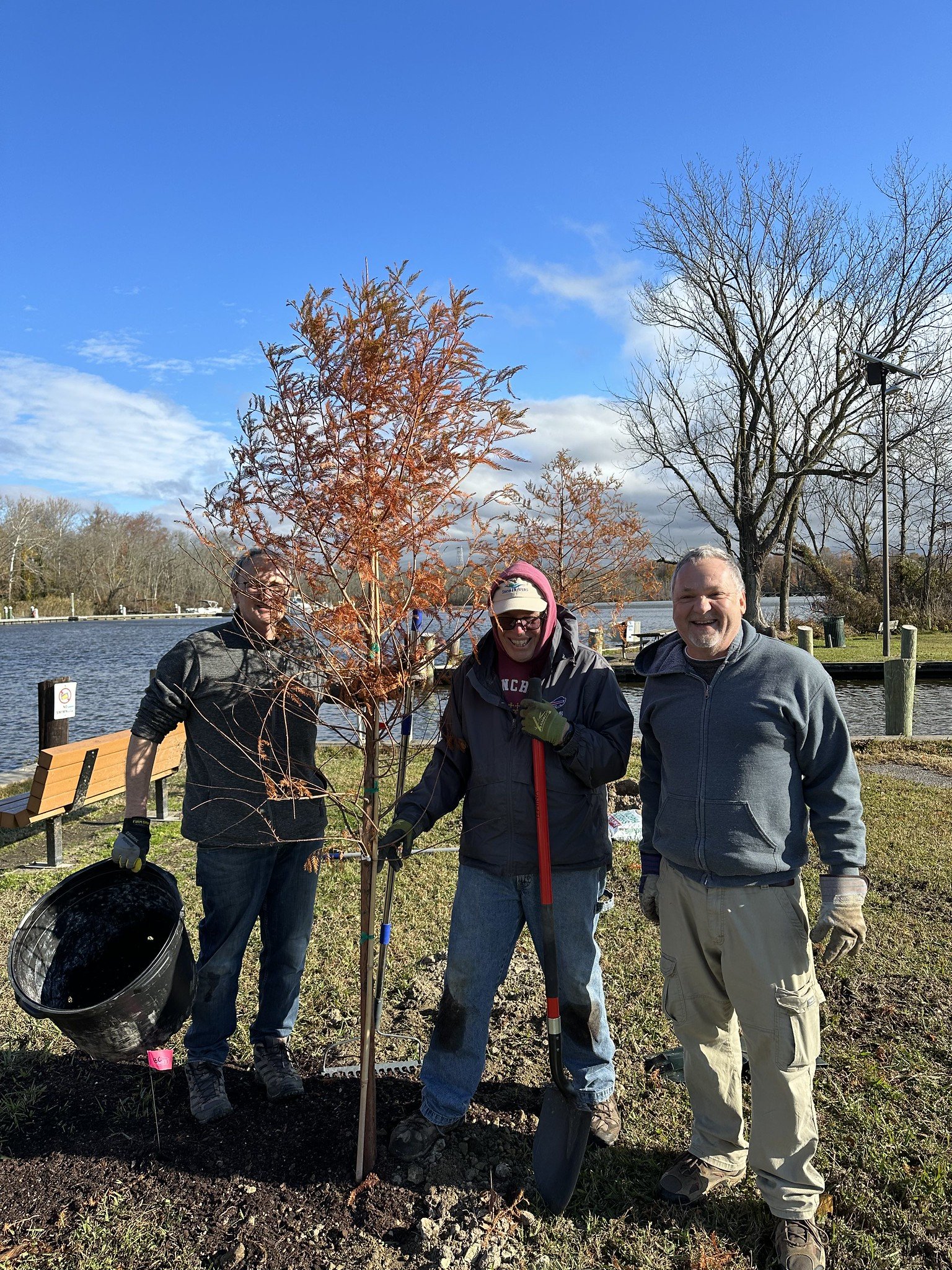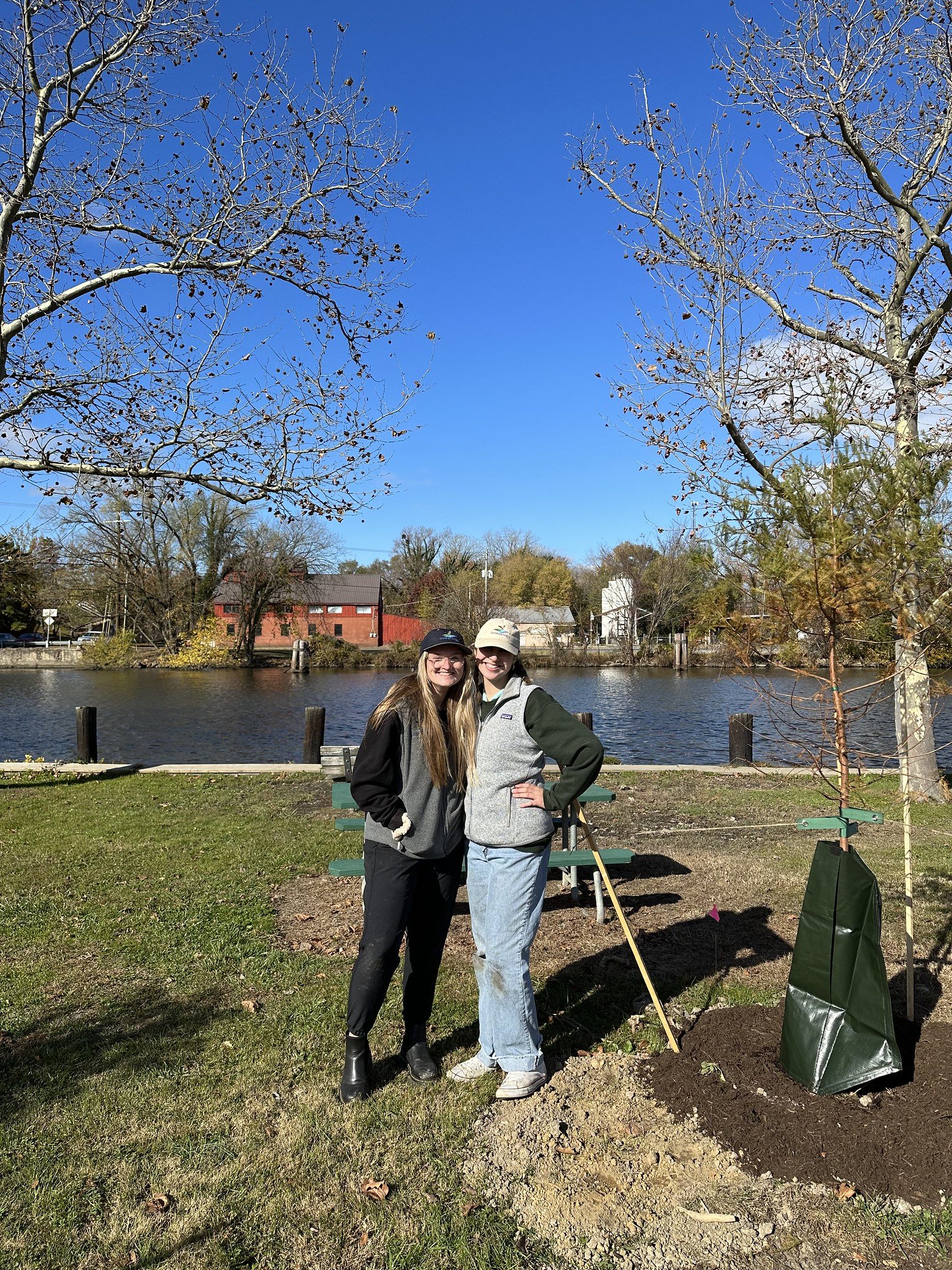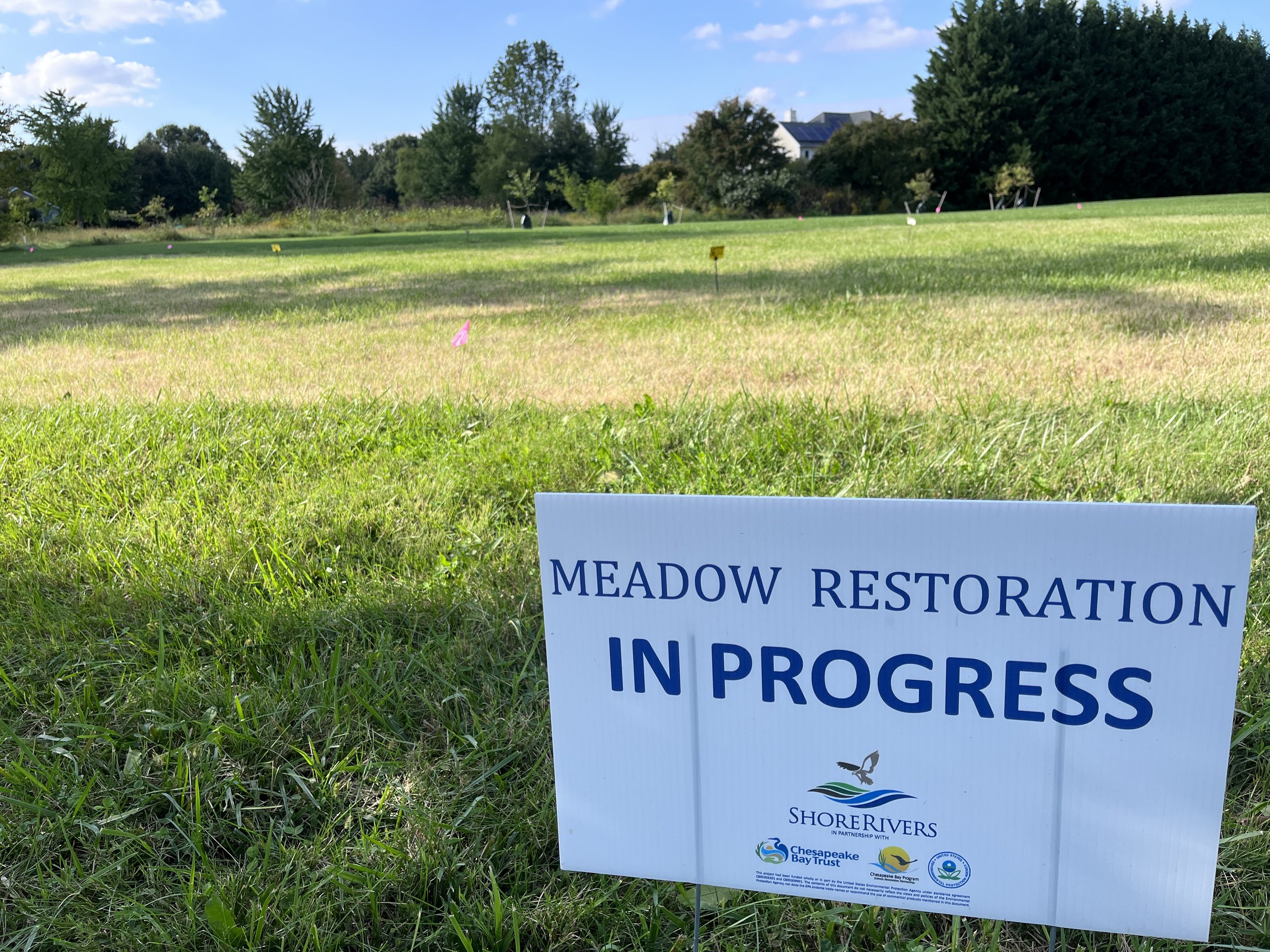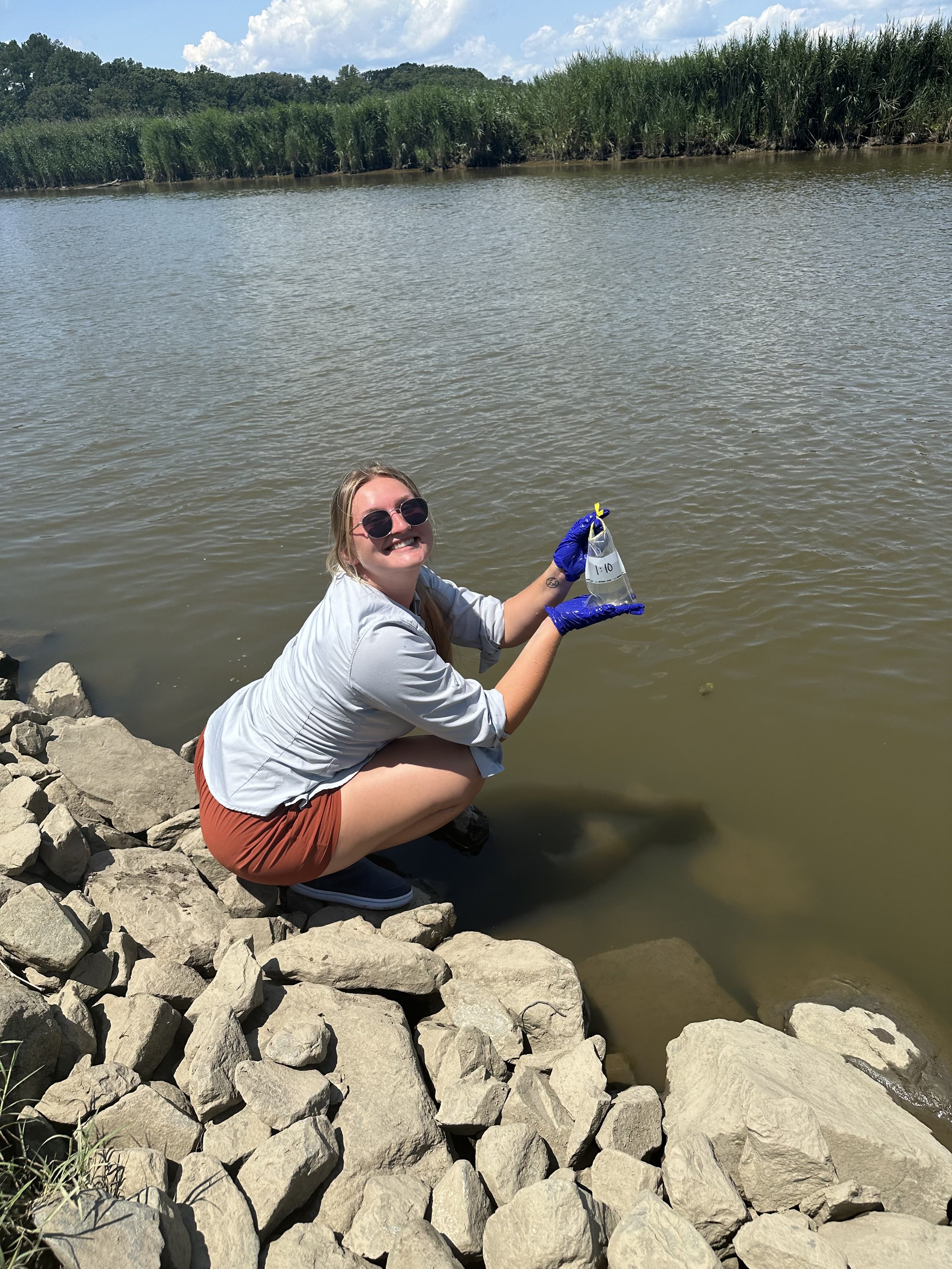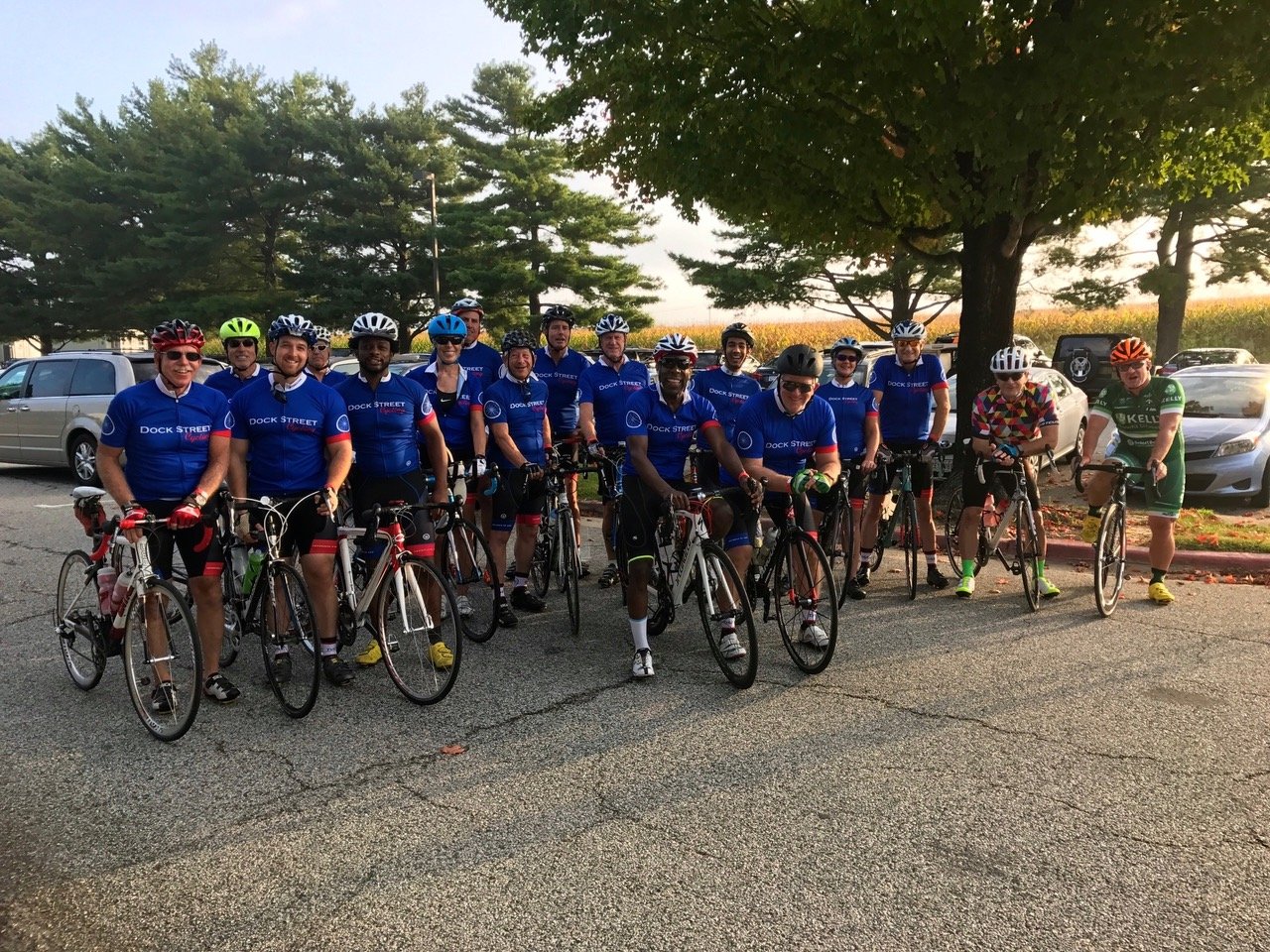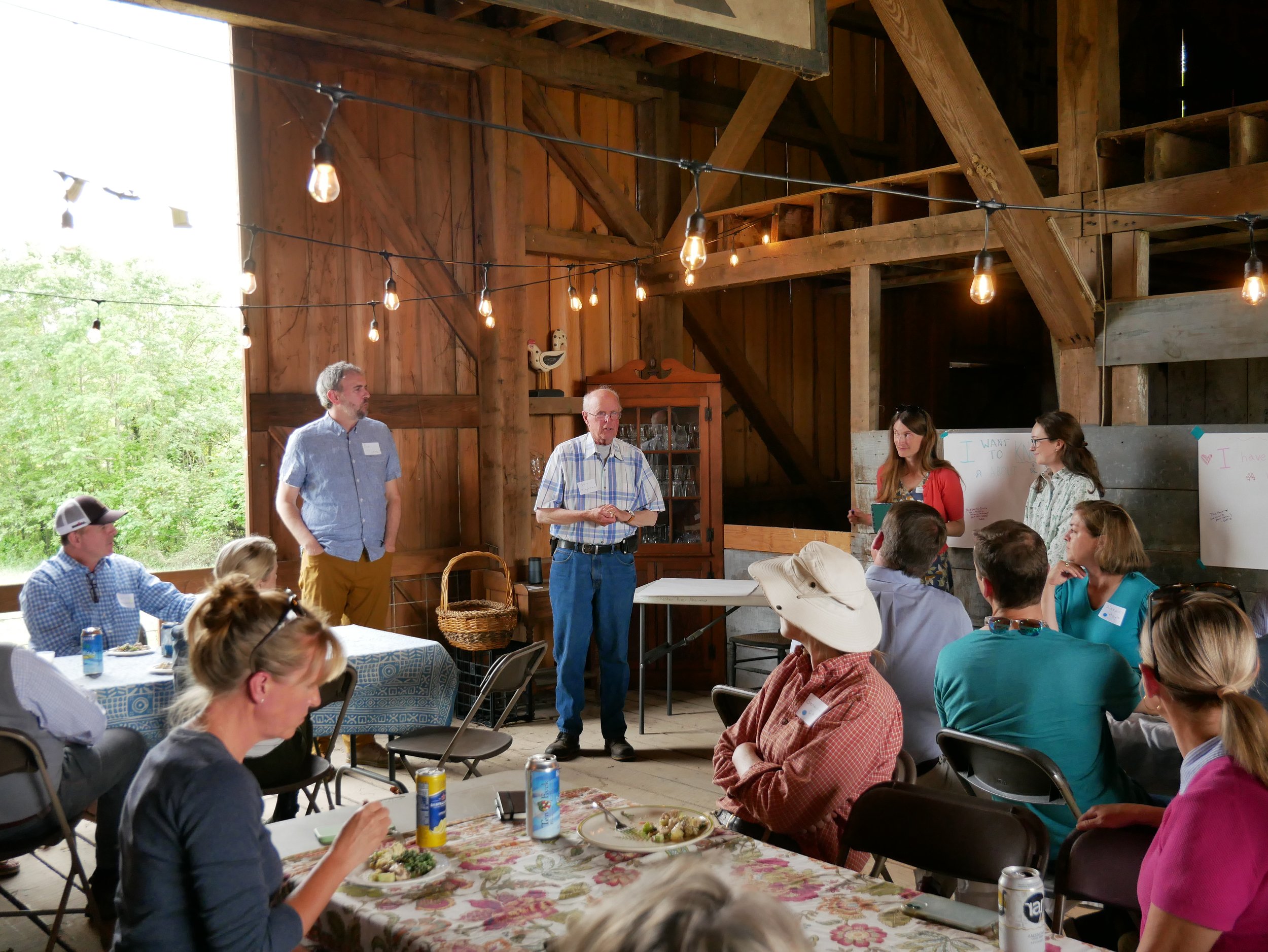Through its new Tree the Shore program—and with generous funding from the Chesapeake Bay Trust—ShoreRivers is working to add 1,000 new trees to towns across the Eastern Shore. Learn more at shorerivers.org/tree-the-shore.
ShoreRivers is pleased to announce a brand-new initiative that will have direct benefits to Eastern Shore water quality: Tree the Shore!
Thanks to a grant from the Chesapeake Bay Trust to ShoreRivers, the Tree the Shore program will fund the planting of 1,000 new trees throughout Cambridge, Chestertown, Denton, Easton, and Federalsburg. Trees must be planted in areas that benefit the greater community: in front yards, along sidewalks, or in local parks or community open spaces. ShoreRivers is actively seeking input from community members to help identify opportunities within their neighborhood for planting this ambitious number of trees by spring 2026.
Trees provide proven benefits to people, animals, and our rivers. They cool the summer air of our towns, soak up rainwater that might otherwise flood our streets, provide food and shelter for songbirds, capture pollution from the air, and return the oxygen that we breathe. Unfortunately, many of our rural towns are currently lacking a healthy tree canopy. According to a recent and comprehensive study by the Harry Hughes Center, Maryland loses about 3,000 acres of forest every year, leading to poor water quality, fragmentation and loss of wildlife habitat, reduced carbon sequestration, localized flooding, and lower property values. On the Eastern Shore, our counties and rivers are some of the least treed areas in Maryland, with Kent and Queen Annes counties tied for last place.
“Trees dramatically change the livability of our streets, and ShoreRivers is dedicated to growing a lush tree canopy across our watersheds,” said Jennifer Vaccaro, ShoreRivers’ Community Restoration Coordinator. “We envision a future where residents all across the Eastern Shore enjoy the beauty, shade, and life of a tree while it silently and steadily works for healthier waterways.”
In addition to providing funding for trees, ShoreRivers is also able to help partners with their plantings. In some cases, these will be led by ShoreRivers Tree Stewards—volunteers trained to work within their communities to identify areas in need of tree canopy, create planting designs, and organize and lead tree planting projects. If you don’t have a location that’s right for Tree the Shore but would still like to get involved, please visit shorerivers.org/programs/treestewards to learn more.
ShoreRivers is committed to working with all communities, especially historically underserved communities, to plant trees that will shade their homes and mitigate flooding. The organization is currently pursuing additional funding to plant trees beyond the towns targeted by this Chesapeake Bay Trust grant.
The public is encouraged to request trees and learn more about the Tree the Shore initiative by visiting shorerivers.org/tree-the-shore.
